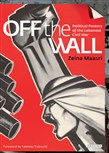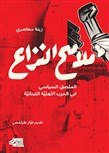[...]
In her introduction, Maasri contends that the standard paradigm of visual culture studies-one that proposes a polarity between propaganda and activism-fails in the Lebanese case. There was no grasping state apparatus to carry out the propaganda, and because each of the 20 factions in Maasri's study promoted a distinct ideal of the Lebanese nation, there was no
dominant ideology. And the various militias cannot be equated with popular resistance or grassroots activism. Instead, Maasri builds on models offered by Noam Chomsky, Ernesto Laclau and Chantal Mouffe, Stuart Hall and Roland Barthes to understand the posters as "symbolic sites of hegemonic struggle." Hers is a critical argument: The poster does not record a fixed identity but
rather is a medium through which the identity is created and strives for supremacy. More importantly, it is the struggle itself, rather than purportedly natural differences between factions, that accounts for the antagonisms among them.
[...]
Maasri makes two observations consequential for those who study the relationship between nationalism and visual culture. First, the visual is an essential means of establishing genealogy for those vying to assert hegemony... Second, the genealogies of struggle are often in fundamental conflict.
[...]
One can only hope that Maasri's study will motivate scholars to consider more closely the critical relationship between politics and visual culture.
[...]



